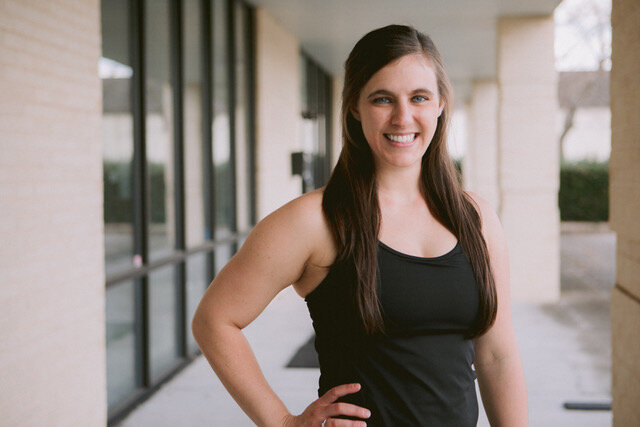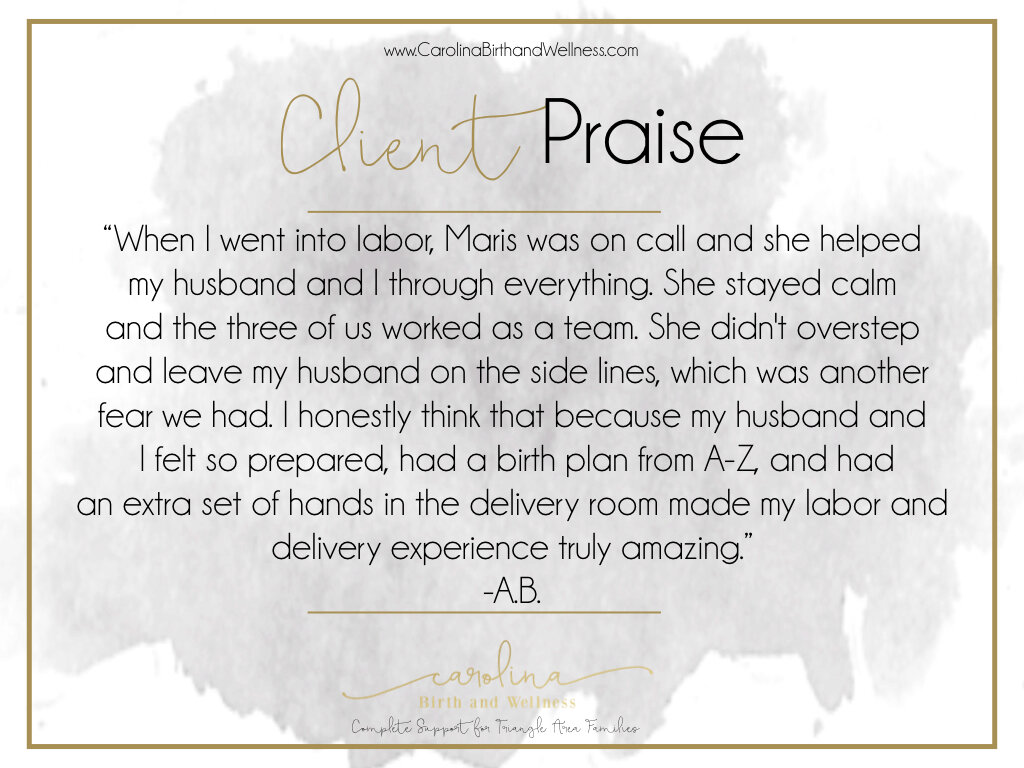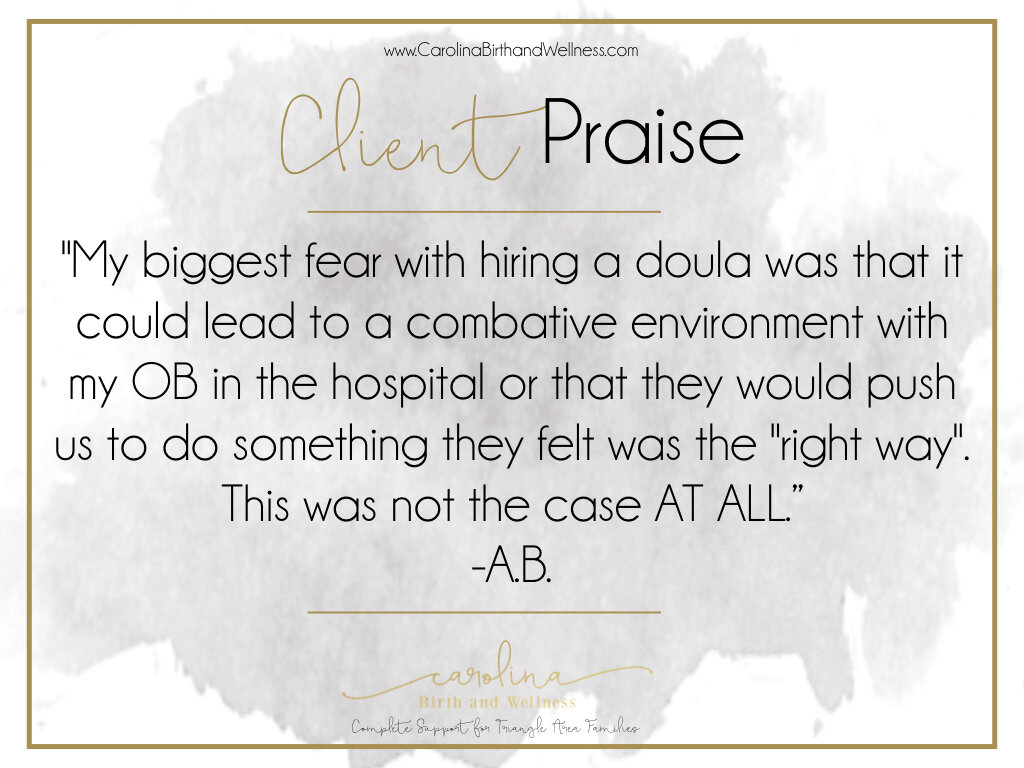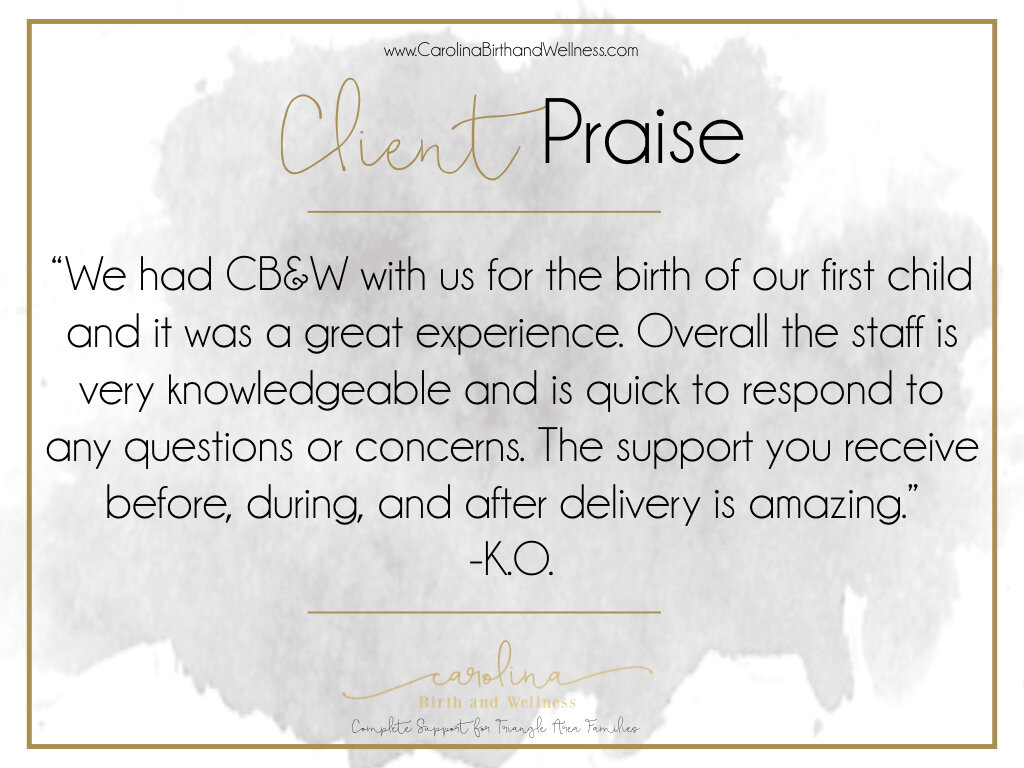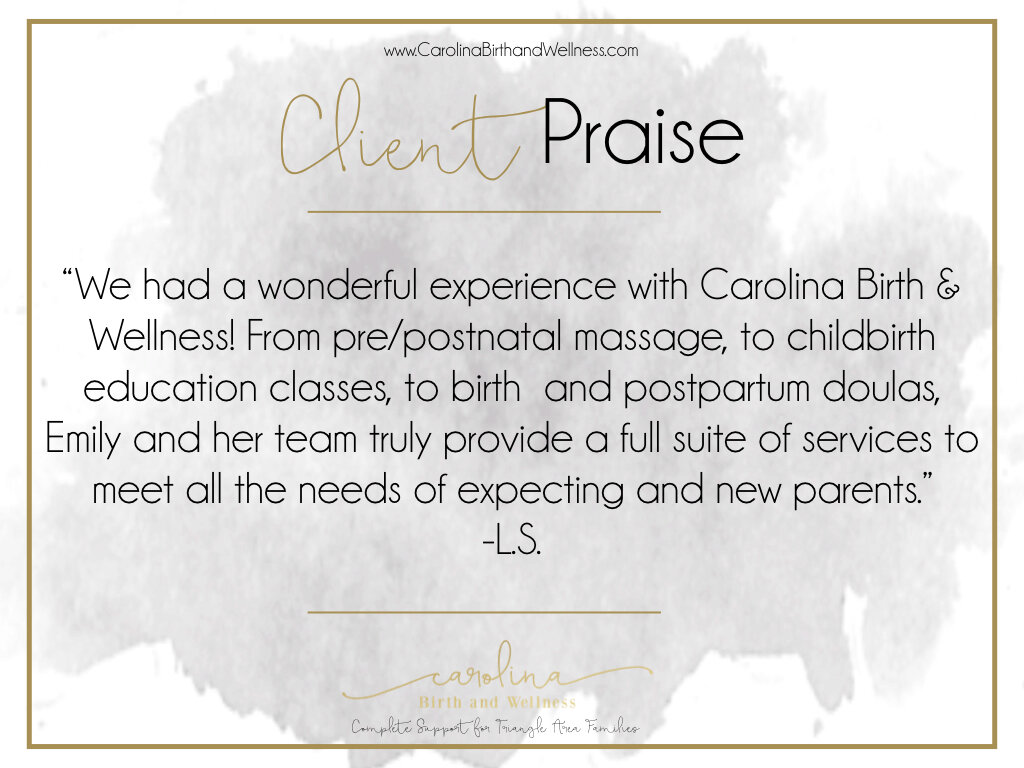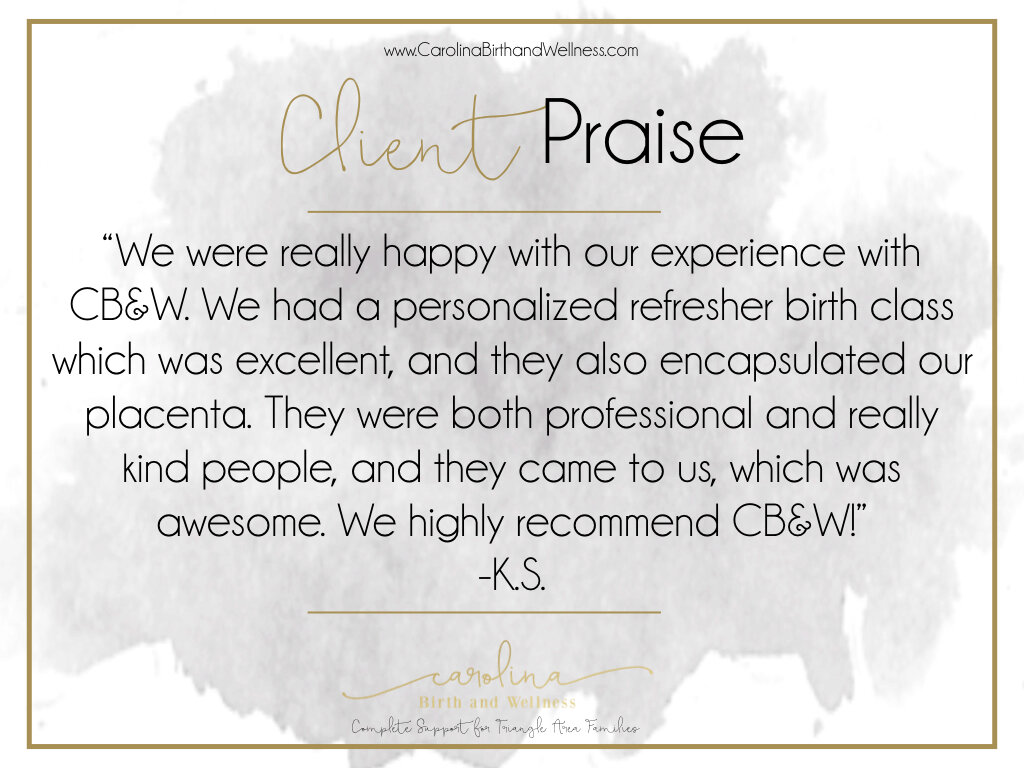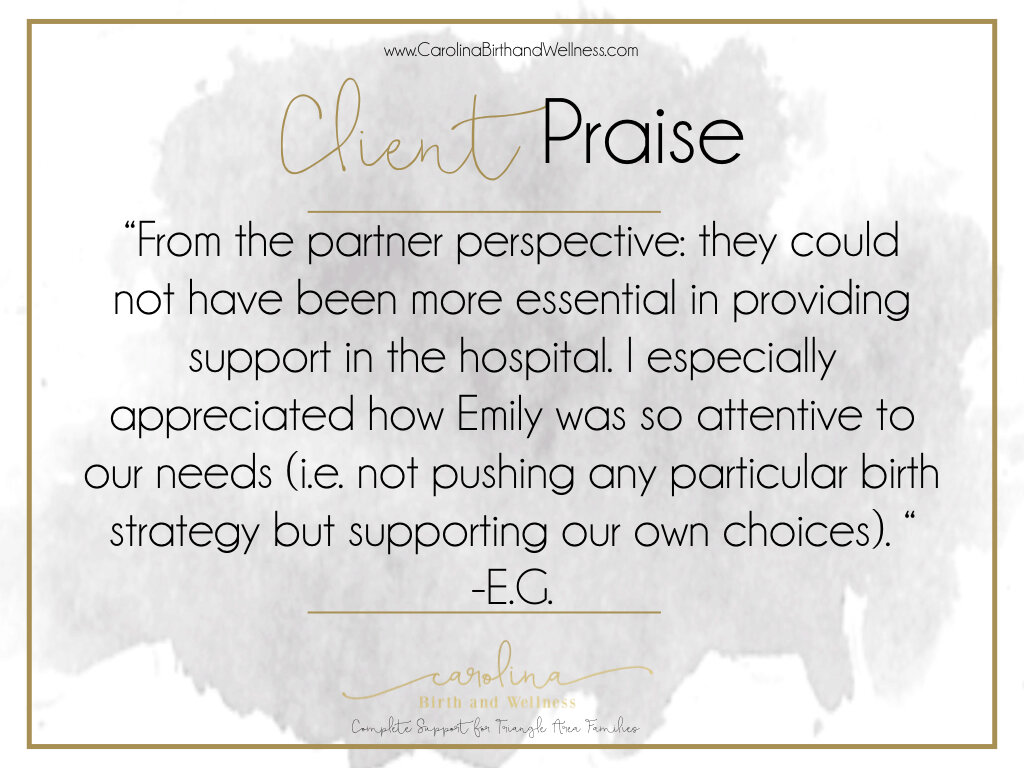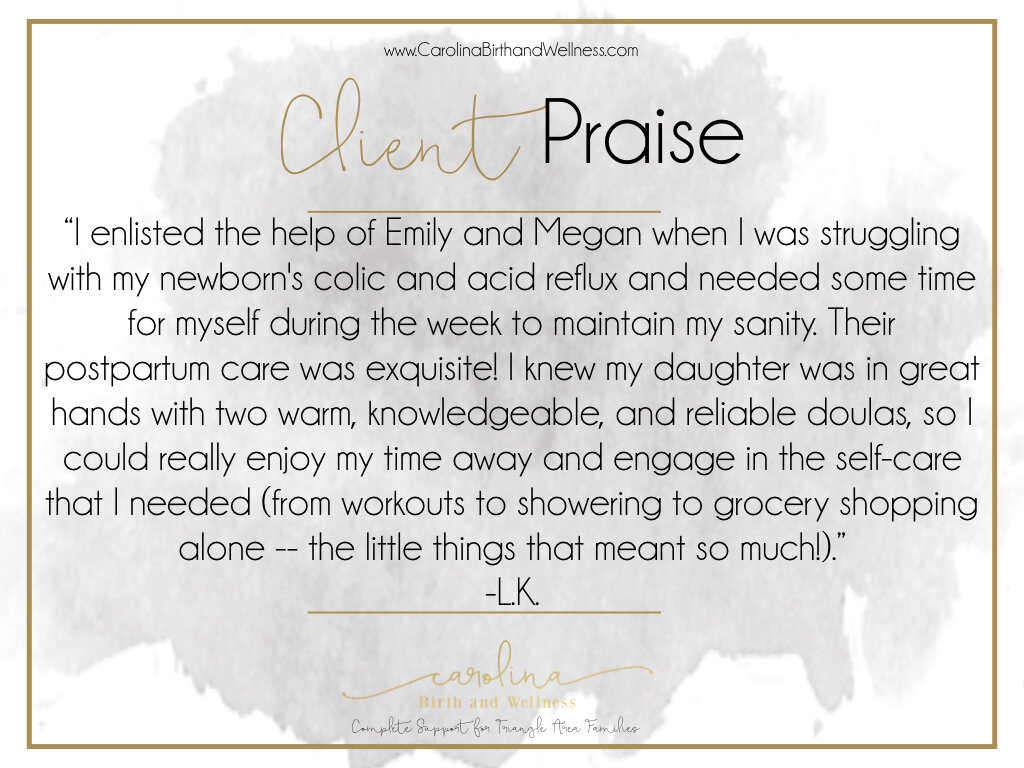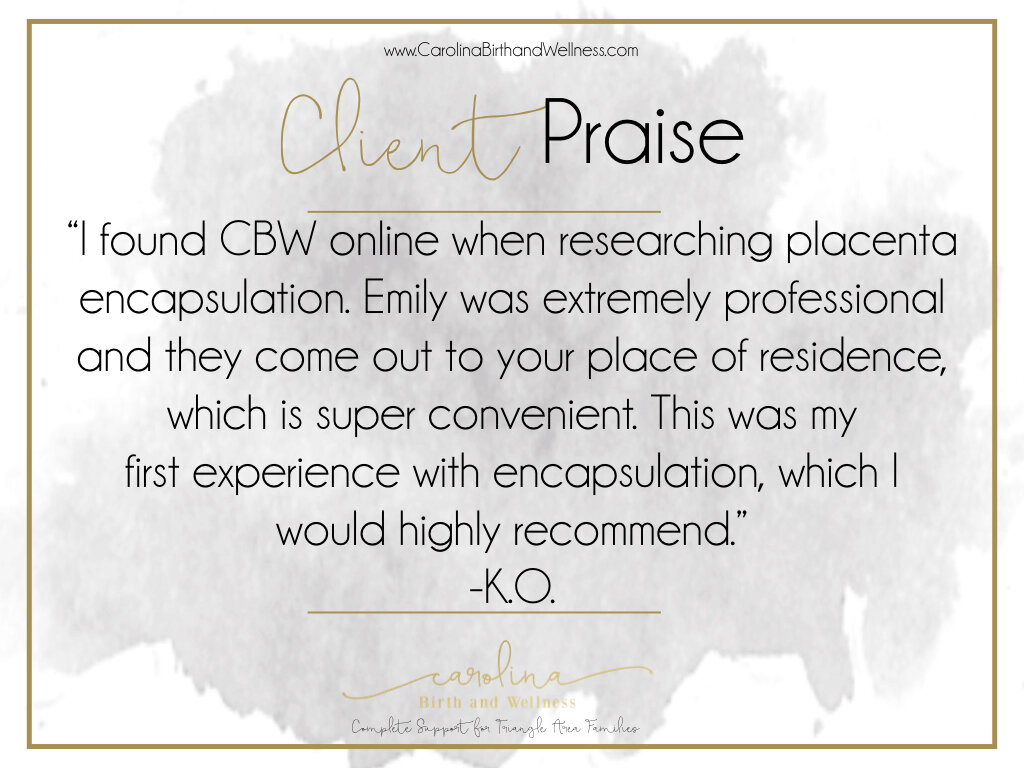Football Hold for Breastfeeding/Chestfeeding
The football hold is very popular and comfortable position for both the lactating parent and baby. Our postpartum doula, Samantha, shows you below how to succeed in this nursing position.
Cross Cradle Breastfeeding Position
Finding the right feeding position to feed your baby is key. In the below video, our postpartum doula Samantha, explains the cross cradle hold for nursing.
New Service: Lymphatic Drainage Massage Now Available!
We are excited to offer lymphatic massage in addition to our prenatal and postpartum massage services at Carolina Birth and Wellness!
Lymphatic massage, or MLD (manual lymphatic drainage) is a gentle technique involving rhythmically stretching and compressing the skin over specific structures and pathways to support drainage of fluid in the body. It is a light yet effective modality that feels great and has a huge amount of potential health benefits.
Typically, the lymphatic system will move lymph through the body and back to the heart to filter back into the body. However, when something distributes this system, lymphoma, or swelling, can occur. MLD helps reducing that swelling, move lymph more effectively, and provide overall support for the lymphatic system and body as a whole.
MLD is becoming more and more popular these days as many people discover via social media just how vitally connected the lymphatic system is to all the other body systems, especially the immune, circulatory and nervous systems. While massage should never take the place of seeking medical advice or treatment should a potential health issue arise during pregnancy or the postpartum period, MLD may help with the following:
Increase relaxation
Reduce fatigue
Promote quality sleep
Reduce pain
Support immune function
Reduce prenatal or postpartum swelling
Promote cesarean scar healing and reduce "shelf"
Reduce breast engorgement
Prevent and treat headaches and migraines
Promote healthy digestion and elimination
Improve skin health
Removal of waste products from the body
This massage is offer exclusively by Lauren either at our South Durham office or your home (if you in our travel range). Lauren is a CLT (Certified Lymphedema Therapist) which means she has advanced training in lymphatics. She has treated patients with swelling and lymphatic insufficiency in a physical therapy setting for over 2 years.
Our MLD massages are 60 minutes and can be scheduled directly online when you are ready to experience these amazing benefits!
Paying For Doula Support: HSA/FSA or Insurance Reimbursement with a Superbill
As you are preparing for your birth or postpartum period, we love talking about the numerous benefits of having a birth doula or postpartum doula such as:
Improved birth outcomes
Better communication between you, your partner, and your medical team
Overall more satisfaction with your birth experience
Education and guidance throughout pregnancy, birth and the postpartum period around your body, feeding your baby, and more
Support and education around infant feeding options
Emotional support throughout the entire process
And SO much more
But we also recognize that paying for this support can be a burden for many clients, and we are here to offer some guidance.
Please note: The information in this blog is general information, and you should always check with your specific plan and provider to ensure it applies to you.
First and foremost, always check with your employer to see if they offer any benefits for paying for a doula. Carrot is a growing benefit that many employers are offering, and one that we work with regularly!
If your employer does not have any reimbursement benefits, there are still options!
If you are trying for any type of insurance payments or reimbursement, getting a Letter of Medical Necessity (or find one from your specific insurance provider) from your provider will likely be needed. We recommend printing one out and bringing it to your next appointment to talk with your provider.
Paying with your HSA/FSA Card
We are approved to accept Health Savings Account (HSA) and Flexible Spending Account (FSA) cards directly. However, we do suggest that you confirm that the specific service you are purchasing is covered by either your HSA or FSA and that your Letter of Medical Necessity mentions those specific services.
We have had clients in the past be approved for birth doula support, postpartum doula support, childbirth education, massage therapy, lactation support, and more! So definitely check to see what is covered, and what is not covered, to really max out your benefits.
If needed, we can provide a detailed receipt for you to submit as well.
Insurance Reimbursement with a Superbill
When you are not able to pay with a card, sometimes receiving a superbill and submitting it along with your Letter of Medical Necessity for reimbursement is the right choice for paying for your doula support.
In all of our Superbills, we include a whole host of acronyms and terms that insurance companies like to see including EIN, NPI type 2, Taxonomy Code and more. However, we always recommend that you reach out directly to your insurance provider to find the exact wording they like to see for Superbills to be approved. We are happy to include that language for maximum reimbursement, just let us know what you need!
While it may feel like a lot of steps, we do encourage you to at least try! Best case scenario is that you have an amazing team of birth doulas to support you during your birth and then come home to an amazing day or nigh postpartum doula that has been partially or completely paid for by your insurance!
We offer complimentary consultations with all of our doulas, so please reach out today to get one schedule.
Questions for Potential Birth Doulas: What You Really Need to Know
As a longtime practicing birth doulas, we’ve done countless consults with expecting families. The questions our teams have receive vary wildly, from standard clarifications as to what services we offer to left-field inquiries such as naming a superpower or a weakness.
The most common refrain on these calls is typically an admission along the lines of, “we don’t know what we don’t know.” Unless you’re deeply familiar with birth work, that’s ok!
Every birth doula you meet with offers a variation on prenatal meeting(s), being on call for you before labor, in-person labor support, and postpartum visit(s). You should always ask how much you can expect to see and hear from your doula(s) before, during, and after your labor, and all of these should be laid out in any contract you sign.
We’re here to give you a leg up on what kinds of questions you want to ask to better know your doula(s), why you want to ask them, and what questions actually don’t give you much information!
Q: What is your experience at our birth location and/or with our providers?
Every birth location has a different feel and flow, with differing protocols and resources. Practices themselves, even at the same birth location, can vary wildly in their approaches. Having a doula familiar with your chosen location and/or with your practice can make a huge difference in having context for what options will be available to you, what you can expect of your birth experience, and how your team will be supporting you.
Q: Can you give an example of a time when you had to…
Advocate for your birth clients?
Pivot from the planned birth preferences?
Handle an emergent situation in a birth?
Before interviewing doulas, we urge you to consider any sources of strong feelings you are bringing into your birth experience. Do you feel confident in advocating with your team? Do you have a complex medical history or anxieties around health? Do you have a strong preference for how you want to cope through labor? Asking doulas for concrete examples of how they’ve supported clients in the way you are hoping for support will give you a great sense of what this looks like in action.
Q: What does on call for our due date look like for you in practice?
Every doula offers some iteration of being on call for clients, and the parameters of this should be laid out in any contract you sign. However, on call can function very differently – some doulas will be on call 24/7 from the moment you sign, others for a specific period, such as 37-41 weeks. Ask for how it all works in practice – who is available if your doula is not, ways of contacting your doula during on call, expectation of timing for when they will join you in person during your labor.
Q: How would you describe yourself as a doula, and your reasons for doing this work?
Understanding how and why your doula does their job is the best way to tell if it’s a good fit. What strong feelings, philosophies, or experiences are they bringing into the birthing space with them? What clients do they find they connect with really well? Doulas are people, too, and you want to be as comfortable as possible with your doula when you’re entrusting them with the honor of being in your birth!
Q: How many due dates do you have in the month we’re due?
Timing of due dates is very tricky – it’s honestly a complete estimation! Unless you have a planned cesarean or induction, you can delivery anytime between 37-42 weeks. Having other due dates near yours is not as relevant as how many due dates total your doula has within the same stretch of 4 weeks. Are you overlapping with one, three, five other families? This will also need to be taken in context of the on call parameters.
Now other questions commonly mentioned online might seem like a good idea in theory, but actually don’t tell you too much in practice:
For example, Are you trained or certified with X organization?
Doula organizations are largely run by private businesses – trainings and certifications have no statewide or national oversight or processes. Unless you’re familiar with what the certification process looks like with a specific organization, or you’ve read up on the philosophies of a training business, where your doula trained really doesn’t tell you much unless you ask further questions such as why they chose that business to train with.
Similarly, it seems like a good idea to ask How many births have you attended? But what does that tell you really?
It might seem good to have as high a number as possible, but experience can be very difficult to qualify as a doula. How many years have they been practicing? How many of those births are with families resembling yours – with your practice, birth location, health backgrounds, family structures, birth wishes? Sometimes experienced doulas have very set ways of doing things, whereas newer doulas are more flexible and willing to try new things. A doula might have only 5 births under their belt, but a wide range of experience within those births – high-risk babies, home birth, induction, etc.! No two births are exactly the same, no matter how many deliveries a doula has supported. Asking more qualitative questions than quantitative will give you a better idea of how a doula’s support will feel.
We hope this is helpful as you begin to think about if a birth doula is right for you. We offer complimentary consults with our birth doulas, and those can be in person or via Zoom, whatever feels most manageable and authentic to you! Please reach out to get one scheduled!
Paying for Doula Support: Carrot Benefits Explained
Doula support is something that we find extremely beneficial and we are excited to see that various insurances are recognizing these benefits as well!
Carrot Insurance provides benefits for birth doula and postpartum doula support. We are here to break down the process for you.
Carrot is a benefit covered by many employers to provide personalize support through the perinatal period. They provide reimbursement to employees for fertility support, birth doula support, and postpartum doula support, plus many other services. To learn more about this great offering, you can read more on their website.
So how does it all work?
When new clients come to Carolina Birth and Wellness with Carrot benefits, we ask that they let us know right away that they will be using this benefit to ensure that we can provide a doula that meets the requirements.
Carrot requires that doulas:
Have a valid and current certifications (specific program is not mandated, but certification is required)
Have at least 24 hours of evidence-based training that covers their specific profession (labor or postpartum)
Have at least 15 hours of experience supporting at least three clients.
The majority of the current birth doulas and postpartum doulas at Carolina Birth and Wellness meet the requirements for Carrot reimbursement.
1. Meet with your doula
Once you have met with your doula, we ask that you submit that information to Carrot for them to send us the Doula Attestation Form. In this form, information is asked about the doula including uploading proof of certification. We are able to take care of everything and communicate directly with Carrot.
2. Pay for your support to Carolina Birth and Wellness
After the Doula Attestation form is completed, clients are asked to fill out the intake, contract, and pay the invoice provided by CBW. It is a requirement from Carrot that postpartum shifts specifically are broken down by hours per day, so that must be decided at contract signing. As the client, you can decide if you would like to make one payment with one receipt to submit for reimbursement, or two payments and two receipts.
3. Get your reimbursement from Carrot
After payment is received, we have a specific Carrot Receipt that we fill out that includes items related to CBW but also the specific doula support. Once we completed and provided the receipt, you are able to submit that directly to Carrot for reimbursement.
With these three simple steps, your doula support is covered and much of it is hands off for you!
We hope this helps you figure out how to use your Carrot Benefits to pay for doula support! Please always reach out to us for questions about how we can help navigate this process with you!
Writing a Birth Plan: Childbirth Education with Carolina Birth and Wellness
Our 3.5 hour childbirth education class covers all the major topics from physical and emotional comfort measures, to the labor process, and through medications and augmentations used in the birth process. To end the class, we introduce the idea of writing your birth plan. And why do we end the class with it rather than start it? Well, because we want you to know what the heck to include!
Learning Comfort Measures and Coping Strategies: Childbirth Education with Carolina Birth and Wellness
In our Childbirth Education small group classes, we like to empower families with toolkits for coping through labor and delivery.
Getting to Know the Labor Process: Childbirth Education with Carolina Birth and Wellness
In our Childbirth Education small group classes, one of the things we deep-dive into is the process of labor and delivery.
Provider Spotlight: Dr. Valerie Nazario of Well Aligned Family Chiropractic
Connection with Dr. Valerie Nazario of Well Aligned Family Chiropractic a few months ago was an absolute pleasure. Not only is she extremely passionate about chiropractic care, specifically the perinatal population, she is also extremely personable! And as bonus, she speaks Spanish which I know extremely important for many of our clients!
Provider Spotlight: Kyrsten Spurrier of The Perinatal Pelvis
Kyrsten Spurrier of The Perinatal Pelvis is a occupational therapist in Hillsborough, NC, that specializes in women’s pelvic floor health and wellness, specifically for those with pelvic floor dysfunction as a result of pregnancy or birth.
Building Your Registry
Beginning to building your registry for your baby can be part exciting, but part overwhelming! We are here to help.
Provider Spotlight: Creative Conception, Inc
Parenthood looks different for each and everyone of our clients, and for that reason, we wanted to highlight a company this month helps parenthood dreams come true, Creative Conception, Inc.
Provider Spotlight: Back In Action Physical Therapy
Hannah Kirkman at Back In Action is an amazing pelvic floor therapist located in Apex. Not only does she have a keen understand of the pelvic floor and how to properly treat any ailment, she is a mother and understands the reality of being a parent! She is going to help you make a plan that works for you, and a plan that you will actually do! And best part: her practice accepts most major insurance carries!
Provider Spotlight: Functional Phyzio and Performance Therapy
My absolutely favorite part of working in the field of maternal health is connecting to other like minded professionals. I think it makes Carolina Birth and Wellness a better doula agency, it makes me a better a doula, and hopefully it helps our clients! Different professionals who have similar goals of advancing care during the pre-conception, birth, and the postpartum period further build up the options for clients.
When I connected with Dr. Norah Whitten of Functional Phyzio and Performance Therapy, I knew she was someone that our clients needed to meet!
Her interest in athletes as well as pregnant and postpartum folks, I knew she would offer an important perspective when it comes to care for our clients! With her background as an athlete and mom, she is able to bring her PT knowledge to her clients to allow them to lead active and healthy lifestyles, without pain.
PLUS as an added bonus, we are teaming up with Dr. Norah to host Emotional and Physical Prep for Birth and Postpartum on August 21st at 11am! We will be discussing various ways to prepare both your mind and body!
SO, let’s get into the fun of meeting Dr. Norah Whitten!
What made you first interested in women's health, specifically physical therapy?
I always knew I wanted to pursue a career in the health and fitness field. I loved learning about the body and how all the parts work together. I also knew I didn’t want a desk job so physical therapy seemed like the perfect fit. I more specifically became interested in women’s health after I had already been practicing because I started to see a gap in care between the orthopedic and pelvic floor PT worlds. The pelvic floor does not function separately from the rest of the body so it shouldn’t be treated that way. I also really felt like there was a gap in pregnancy and postpartum care, especially in regards to continuing with higher level exercise like running and crossfit workouts during pregnancy and then how to return to these types of exercise during the postpartum period.
What is something that you wish everyone knew as they enter into the pregnancy and postpartum stage of life as related to physical therapy?
It’s not all about kegals! The pelvic floor muscles are just like any other muscle in that they need to not only contract but relax as well! The pelvic floor muscles need to lengthen and “get out of the way” for birth so working on stretching is super important. In the postpartum period it’s also not always necessary to be doing lots and lots of kegals to retrain the pelvic floor. While initially they may need to be done, the pelvic floor works with the body during breathing and functional movements like squats, deadlifts, carries ect. So training the whole body and incorporating breathing into our movements is also going to be important for pelvic floor function.
What are some ways that you can help prepare someone prenatally for giving birth?
There are a few things we can work on! Pelvic floor stretches are a great way to get the muscles to lengthen and open the pelvis. These include things like sitting in a deep squat, happy baby pose or child’s pose. I also like incorporate deep diaphragmatic breaths to really encourage the pelvic floor muscles to relax. We can also review labor and pushing positions to encourage a more open pelvis and potentially decrease brith related injuries. Many women don’t know that they don’t have to lie on their back with their knees up (although they certainly can if they want!) we also can perform or teach patients to perform a perineal massage which helps to stretch and prepare the tissues for birth. While we can’t prevent everything, some studies have shown starting to perform perineal massage at 36 weeks 3-4x per week can decrease the risk of perineal tears.
Ideally, when would you like to see a client in the postpartum period?
If the client is not having any issues such as leaking or incontinence, prolapse, pain ect. then I usually like to seem them around 4-6 weeks. Many women think they are in the clear after 6 weeks and that is not the case! There are definitely things that they can and should start working on prior to 6 weeks like breathing and posture exercises so seeing a PT early on can help provide the needed guidance to make sure each mamma is doing what’s right for her body! It’s also not advised to just jump right back into life and exercise full force at 6 weeks so it’s important to progress slowly and build up strength in the correct way. If someone is having any of the issues mentioned above, they can come in sooner around 2-3 weeks to start addressing these.
When you are not with clients, where can we find you?
Usually working out with my husband and my son who tags along with us to the gym (although he’s 1 so he doesn’t have much of a choice at this point!) Outside of the gym I love finding a good tv show to get hooked on as well as taking long walks around the neighborhood!
Provider Spotlight: Abundant Life Chiropractic
With being a doula now for a few years, many of our early clients are coming back because they are pregnant with their second babies. And those clients hold a very special place in my heart for sure! And I hope we do for them as well. Sometimes, those extra special clients, will even connect us to providers that that love, and well that is just great!
Healthy Ways To Combat Postpartum Depression
Perinatal mood disorders are common as they impact 1 in 5 women and 1 in 10 men, but it’s understandable that you want to take care of yourself and your mental health. Learn various alternative and complimentary health services to help with maternal mental health.
Tips For Working Out From Home
The last year has changed the way that life happens, and in some way for the better. I personally have been a huge fan of the curbside pick up for my groceries, the virtual meetings, and the decrease in driving.
Provider Spotlight: Sara Skinner, LCSW
Working in maternal health is a field that requires an equal amount of passion and drive, but also a personal connection to this time period is often what ignites this passion. Various providers have different paths to this connection whether it is through their experience, a friend or family member’s experience, or just a really inspiring book! I love learning about people’s why as it makes them much more human to me. And in the age of Zoom calls, telehealth, and texting, remembering we are all human is key.
Sara Skinner, LCSW, is no different. She and I actually have known of each since early 2018, we did not officially meet until mid 2019 and then we did not professional connect until just recently. We immediately bonded and talked about all the things related to motherhood, mental health, and of course our mutual love of pit bulls.








